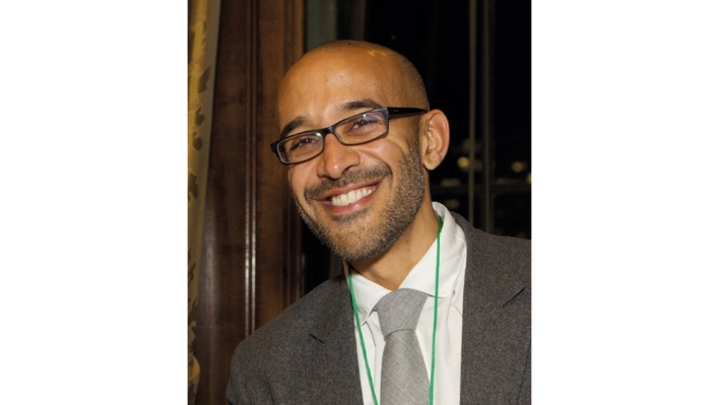Pippa Shawley looks at what is making the comedy commissioners chuckle
The thing about comedy is that everybody is a comedy expert,” says Phil Clarke, Head of Comedy at Channel 4. “Everyone knows what makes them laugh.”
With comedies to be found everywhere, from the big broadcasters to YouTube and pay-television, the British consumer has never had it so good.
“Comedy is experiencing a huge growth spurt, not only on TV but in live comedy, where stand-up and live shows have exploded over the past few years,” says Shane Allen, Controller of Comedy Commissioning at the BBC.
While the BBC and, latterly, Channel 4 have been the driving force behind some of Britain’s classic series, from Porridge to Peep Show, other broadcasters are committing time and money to tickle the nation’s funny bone.
ITV’s comedy output has sometimes been greeted with derision – “Why can’t ITV make decent sitcoms?” asked The Guardian back in 2007 – but the broadcaster is looking to build on the success of its soaps and dramas.
“We have been growing our slate quite considerably in the past couple of years,” says Saskia Schuster, who joined ITV as Comedy Commissioning Editor from Sky last year. “It takes a while, with scripted comedy, for it to translate to what we see on screen.”
Despite some early sneering from critics, ITV’s flagship sitcom Benidorm has been commissioned for an eighth series, which will start filming later this year. “It’s got such a joyful heart,” says Schuster. “Cynical comedies aren’t going to play well on ITV.”
UKTV is also trying to make a splash in the genre. Although Gold has built its brand around collecting classic shows, from The Vicar of Dibley to the exclusive broadcast of Monty Python Live (Mostly), the channel, along with its free sibling Dave, is investing in original scripted comedy.
A portion of UKTV’s £125m-a-year programme budget is being used for five new scripted comedy shows on Gold for 2015.
“It might sound foolish,” admits Richard Watsham, Director of Commissioning at UKTV. “Gold is filled with some of the best British comedy there’s ever been, so for us to try and create our own, in some ways, seems utter madness.
“But, at the same time, we need to offer our audiences new things.”
Watsham says that showing UKTV’s own comedies on Dave and Gold will help the network compete with the bigger broadcasters for quality content: “It’s about becoming more than a manager of other people’s creations.”
Meanwhile, Sky has also been strengthening its comedy output, following the appointment of Lucy Lumsden as Head of Comedy. “When I arrived just over five years ago, I guess the only things we had… were The Simpsons and… Modern Family,” she says.
 Lumsden moved quickly to develop a tone for Sky’s comedy output, coining the phrase “smart mainstream”, based on the idea that, although Modern Family has a broad, family appeal, it doesn’t shy away from the less conventional topics of adoption and gay marriage.
Lumsden moved quickly to develop a tone for Sky’s comedy output, coining the phrase “smart mainstream”, based on the idea that, although Modern Family has a broad, family appeal, it doesn’t shy away from the less conventional topics of adoption and gay marriage.
With so many platforms now carrying comedy, there is a constant need to nurture new talent in the genre.
The BBC, which has a long history of fostering young talent, encourages new writers in a number of ways. The joint BBC Three and iPlayer initiative Comedy Feeds encourages both new writers and new performers to get their foot in the door at the BBC.
The broadcaster’s investment seems to be paying off: six of the one-off feeds have now been developed as series.
“It’s the crucial place to grow new talent and find the stars of tomorrow,” says Allen. But he also believes that radio is still a “vital bloodline for new talent”, along with BBC Writersroom. “There are plenty of ins and a very clear career ladder.”
As with Comedy Feeds, Channel 4’s Comedy Blaps are online-exclusive shorts that offer new writers the chance to try out ideas and, potentially, be commissioned for a full series. They are “pilots for pilots”, as Clarke puts it.
Upcoming series Chewing Gum, written by Michaela Coel and based on her play Chewing Gum Dreams, started off as a Blap “and it was so good, it is now an E4 series”, says Clarke.
Outside of Clarke’s remit, Channel 4’s Shorts, which are overseen by the station’s online team, also offer writers the chance to do something a bit different. Unlike Comedy Blaps, however, they are not so much a route into television, as symbolic of the tendency for the new generation of comedy writers to be digital natives.
“It’s really to harvest people who live their creative life online,” Clarke explains. “I think it’s a brilliant thing because there’s a whole generation of people doing very funny things online, with no ambition to go into television.”
Elsewhere, broadcasters’ investment in talent has gravitated towards already-established writers and producers. “Sky has helped sustain the general growth of the industry, but it tends towards established talent,” says Allen.
Lumsden admits that there was a “healthy sense of urgency” when it came to commissioning Sky’s first clutch of comedy series. This meant that it didn’t order many pilots; instead, it commissioned whole runs. Shows such as Stella and Moone Boy have now run for several series and are firm favourites on Sky.
Broadcasters on all sides have come under fire for giving too much airtime to middle-class sitcoms, but commissioners insist that viewers should start to notice a more diverse output in the coming year.
Channel 4’s recent 360° Diversity Charter has enshrined the need for its output to reflect a wider cross section of society. “It was genuinely shocking when Lenny Henry pointed out that the industry has actually, in terms of diversity, gone backwards,” says Clarke.
Coel’s upcoming Chewing Gum will go some way towards redressing the white, middle-class dominance of television comedy.
“She’s a terrific young, black, female writer,” says Clarke. Chewing Gum “is all about growing up on a south London estate, [it’s] very funny, very touching”.
Schuster is on the hunt for more comedies that reflect the world we live in: “I think comedy, as much as anything else, is about holding up a mirror to the world and giving a different view of our lives.”
Reflecting the diversity of British society is something the BBC’s upcoming slate is intended to address. BBC Two’s Boy Meets Girl, discovered through a BBC Writersroom and Trans Comedy talent search, will be the first sitcom to focus on transgender experience.
Meanwhile, The Javone Prince Show, from the star of E4’s PhoneShop, will be the first black sketch show in, as Allen points out, “way too long”.
For Allen, commissioning a diverse range of comedy is about more than ticking boxes: “Our shows have to look like the Britain we live in… Deep down, we want to have brilliant comedies that transcend being put in the boxes of class, age, sex, whatever, and have shows that unite people in the way the classics always have – be it Porridge, The Good Life or Only Fools and Horses.”
While much has been said about the success of Miranda (written, produced and directed by women), and the impact it has had for women, it is indicative of the wave of women working on successful comedies across the industry.
“When I first started, about 3,000 years ago, comedy was a male preserve,” remembers Clarke. “Over the past 20 years, we’ve seen women find their comic voice and being allowed a comic voice.”
According to Allen, the “Miranda effect” and the work of French and Saunders, Catherine Tate and Ruth Jones, among others, have given more women the confidence to pitch comedies to the BBC.
“The huge success of Miranda should make any aspiring female talent feel it is within their grasp to be top of the comedy tree and not have their originality and voice diluted.”
Ruth Jones’ Stella has just returned to Sky 1 for a fourth series. She is developing another project for the BBC, while Caitlin Moran’s much-anticipated Raised by Wolves will hit Channel 4 later this year. Emma Kennedy’s new series, based on her working-class upbringing, will air on the BBC in the spring.
Though the broadcasters are keeping many of their plans for the general election under wraps, the event will provide an important boost to satirical programming, which has dwindled in recent years.
ITV has commissioned Newzoids, a six-part impressions show with puppets voiced by a cast that includes Jon Culshaw and Debra Stephenson.
Charlie Brooker is working on a special Election Wipe for the BBC, which is also developing “something special” with Rory Bremner.
The future of BBC comedy will be shaped, to some extent, by the BBC Trust’s decision on whether BBC Three should be moved online.
If BBC Three does go off air, the iPlayer-exclusive series – such as Funny Valentines, featuring shorts by Bill Bailey and Sara Pascoe – hint at the potential for the broadcaster’s on-demand content.
“It’s a burgeoning area because it can accommodate ideas that may only be two minutes long… or things such as animation that might struggle to launch on linear TV,” says Allen. “As with any creative endeavour, what starts out as left-field and ahead of the curve can sometimes evolve and become more mainstream.”
Despite the continuing obsession with classic sitcoms such as Only Fools and Horses and Steptoe and Son, there is a feeling in the industry that British comedy is experiencing a renaissance.
“I firmly believe we’re living in it,” says Allen. He points to Miranda, Outnumbered and Mrs Brown’s Boys as the kind of programmes that viewers will watch for decades to come. “It’s brilliant and mostly unique to comedy – families don’t sit down to watch decades-old documentaries, or even dramas. Lots of other genres are ephemeral and disposable, but not comedy.”
While it’s unlikely that the size of today’s sitcom audiences will ever reach the giddy heights of some of Britain’s best-loved older shows, there have never been so many opportunities to make or watch comedy.







